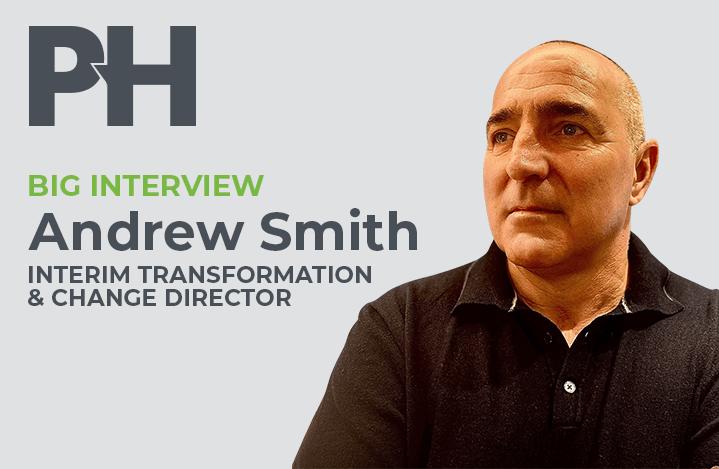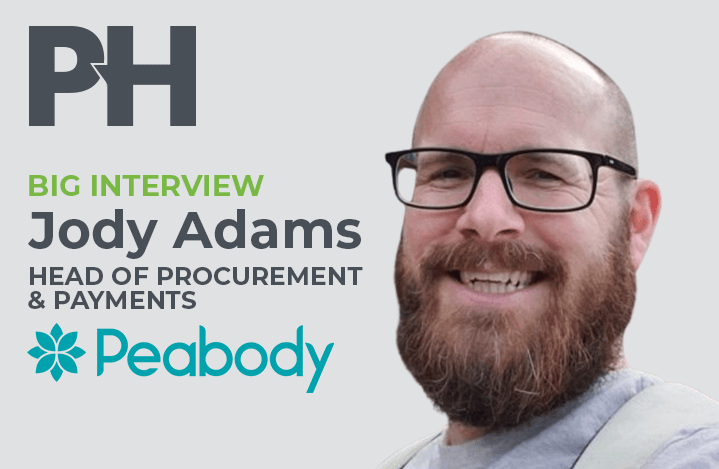How did you get into procurement?
I sometimes wonder actually, how did I end up here?
But it was quite simple for me, I was leading the National operation for a rather large FMCG organisation and this included logistics, supply chain, quality management, innovation and field operation, unbeknown to me there was a procurement team from the centre that had decided to consider outsourcing the whole operation, but what they had failed to do was engage with the key stakeholder, me.
So, they had created this whole business case, and they started talking about what was possible from a procurement perspective but had missed the whole point about stakeholder engagement and business requirements going forward.
What happened was a bit of a collision when I realised that the procurement team had spent months of work in a vacuum and they decided to present a fait accompli about outsourcing to which I had a real reaction.
I got hold of the CPO and said this is not the way you create relationships and build value.
We had a conversation and reset the agenda, I was up for the conversation about how to create more efficiency across the organisation. So, we let it go, we made it happen and ultimately, I joined the group procurement function.
I moved into a Head Of Indirect Procurement covering the broad business services categories, IT and marketing spends across the UK and Ireland … this is where not being a procurement practitioner helped me as I spoke my stakeholder(s) language!
My team were steeped in procurement methodologies with deep technical capabilities and they were thinking what does this guy know about procurement?
But I didn’t worry about the technicalities, what I did care about was making sure procurement did the right thing and partnered in the right way.
I thought how can I find a way to create a much more sophisticated engagement model that created value from the very beginning and that’s what happened, rebuilding the brand and finding better ways to engage with internal stakeholders and external vendors.
Then ultimately over time, you start to elevate your procurement career within the organisation.
My ultimate role was to lead the global professional services category which had significant spend, that enabled me to engage and work with the PLC main board.
Business partnering built credibility and allowed me to get close to the strategic direction and action of a PLC and this is where procurement should be, sadly this is often isn’t the case, which means you can just end up with the buying element rather than the real strategic activity where you can deliver real tangible value through co-creation, collaboration and innovation.
This was the premise of starting to build the brand of procurement and as they say, the rest is history.
What led you to move into the interim market?
The career I had was almost 20 years with one organisation.
Within that organisation we had a superb rotation programme.
So, you typically spend 18 months to two years in a role but you would start to think about what the next one would look like, it was very outcome-focused, very project based but very clear on the expected deliverables.
When I went through my outplacement coaching, they said you might want to consider becoming an interim, at first this was new news to me!
The rationale behind the suggestion was that the types of roles and activities I had completed may be a perfect fit for other organisations that needed help and immediate impact where I could bring that experience to other organisations so it got me thinking.
It is at that point where you go right, I’ve been part of a PLC, I’ve had all these great things around me, great teams, great systems, great capabilities to then find yourself as a soul interim on your first assignment.
You have to back yourself and that is something that you learn as you go through your career, if you don’t back yourself even in the permanent world, you never will.
It was fantastic actually when you realise that it is now down to me.
So, it is about how to make the transition to becoming an interim and not lose sight of all the things you have achieved and how you can create value from day one.
It is not for everyone but I absolutely enjoy hitting the ground running, building trust and credibility and leading with confidence despite the challenges in front of you.
How has your experience in various industries differed and have you enjoyed working in some sectors more than others?
Obviously, you have the nuances of the particular industries but the way I think about it if you stake a step back typically there are a number of common themes, I wouldn’t say that any industry vertical is that different apart from those that are subject to regulation.
Typically, there is a big people challenge, a big process challenge and technology as we think about how the future may look can be a challenge.
I have seen a lot of self-interest from leaders which sometimes means it becomes of ‘no interest to them’ which means you can find an organisation constantly rubbing up against itself because of that self-interest and as an interim you have to get underneath that and quickly as I often find that this may create a lack of clarity or a lack of purpose, or where somebody had taken their eye off the ball and has become distracted.
If you think about it there are a lot of humans around in the workplace and we have got to work together and strangely that doesn’t always happen, which is disappointing if you spent the time thinking about collaboration we would be in an incredible place.
That is what propels me when I say stop fighting with each other and find the common ground that is some of the subtlety around procurement how do you find that ability to collaborate and co-create?
You’ve worked for a lot of large brands including 15 months as a Global Programme Director at Centrica, what were you responsible for there?
One of the things I try to do with all of my interims is find the biggest most complex of challenges and Centrica is a fantastic business.
It has British Gas, as a brand, and it is well known to consumers and customers alike.
Within this transformation space, it was about creating a much more agile and nimble procurement group across the globe using technology to support that.
Making sure we could digitalise and create clarity for stakeholders and get procurement out of the way of some of the day-to-day business, get the shackles off and let them grow.
We did some great stuff with sustainability as well, trying to find a way where procurement value is understood where we can partner together and also create real incremental value.
We’re not talking about a few pounds here, we are talking about tens of millions in value.
That was about people, process and technology and being clear with stakeholders about what the success criteria looked like once we stand in the result of a transformed procurement and supply chain operation.
What are some of the biggest changes you have noticed in the world of procurement?
My career has been a game of two halves really, it was customer and consumer then it was the world of procurement.
The disappointment has been the pace of change.
I see still see and hear some of the same challenges around today as that of 20 years ago … I wish procurement could be understood, I wish stakeholders could see what we do, and why don’t they let us in at the beginning, we have lots to offer here!
I guess what impresses me is the pace of change around digitalisation in procurement, some of the products and services are now quite easy and accessible to plug in quickly and show value.
So, for me, there is a real case here for speed to value and finding a way to distinguish the role that procurement plays at the top table and allow the business to grow.
So, what are the things you can put in place to allow this ability for the customers and consumers to buy in a compliant way which also then supports the ESG agenda.
ESG is a new phrase it is the acronym that everybody talks about, but if I look back 20 years through my career it has always been there but it just hasn’t been talked about as much in the same way.
It is about the procurement proposition shifting from a pure cost focus, it is always about value creation I also would say that we have always considered supply chain risk fundamental to the procurement offer but it is how we elevate that discussion with your stakeholders so that everybody owns it and there is an awareness about why you work in a particular way and source from a particular workplace.
What are the biggest challenges faced at the moment and how do you think interims can help with those?
If you think about the pace that organisations may have grown by acquisition there are often gaps in people, processes and technology.
If you look at the world, say over the last year and what we have been through with recovering from the back of covid and now what we are suffering with the unfortunate war in Ukraine.
It is about how you anticipate and how you build elasticity into your thinking which means you can keep the lights on and think beyond today about growing your organisation.
It is a real head scratch as everyone is facing the same challenge but, for me, if you can tell a great story about your brand and your proposition you have a much better chance of engaging the marketplace and getting the hearts and minds of the third parties to come and work with you.
I also think digital is a really important enabler but I think the costs can scare some of the organisations, but the long-term play and using the likes of AI in the right way and being able to apply that to some of the operational elements drive significant and quick value and gives you the confidence that you are using good data with insight to make the right decisions.
How would you say interims can best help organisations facing these challenges?
A good interim behaves in a practical, pragmatic, direct way where they understand what they are walking into. And they are creating value from the get-go, there is a reason why they become an interim as they can get under the bonnet very quickly.
It doesn’t suit everyone; we don’t have the time to spend wandering around saying how lovely things are – you have to get in and do.
You need the ability to engage with the senior leadership team, the CEO, CFO in a way that nobody else would want to or have the confidence to do.
We are measured on our results from day one and if you don’t call it out somebody else will.
For me, there is a huge opportunity in the interim marketplace but you have to be very clear on delivery, engagement and creating that mutual success criterion together.
You have to be unselfish and drive what is best for the customer.
Often your mandates have seen you spend more than a year and often two years in one place, why do you think this is?
For me, it is just how I am and who I am that I can build rapport very quickly.
I prefer to do a full transformative impact on an organisation. I say here is the type of activities I like to do, I like the big stuff, the complexity and understand the trends that allow me to plug that back in and use it and understand my impact, this thing about value creation is about every conversation you have seeding an idea and watching that accelerate through an organisation whilst building that trust and rapport.
Therefore, when you have that trust you can then drive and be positive about the outcomes, I have a trusted network I work with, when you have chemistry and understanding it means you tend to have a strong chance of staying around and making sure you deliver on the outcomes.
What are the key things you look for when hiring procurement staff?
There are a couple of things, I sometimes don’t look for pure-play procurement, depending on what the procurement/business need will drive
To sum it up I appreciate people who have a generosity of thought, who aren’t scared to share their thoughts and who have a strong sense of empathy is a must-have.
I also look for curiosity, and with curiosity comes the ability to future-proof, where do deals take us.
For me leave your ego at the door, and demonstrate humility when dealing with stakeholders.
This whole thing around the digital mindset, how can we think about bringing that digital perspective in a way that enhances the operation and the stakeholder experience rather than putting them off.
Have a great storytelling ability, capture the hearts and minds and ignite a sense of common purpose and vision both from within the organisation and from your vendor base.
If you think about it there is the procurement technical skillset to one side, brilliant but ultimately it is about people and engaging your stakeholders and the market.
What top themes do you expect to see in the procurement markets in the coming years?
I am not so sure that procurement will be procurement in the next couple of years.
I think as procurement is digitalised it is the process of procurement.
I think ultimately if you can find a way to have your organisation where it knows where to buy, what to buy and how to buy that’s half the job done.
The next piece for me then is about how does procurement become not procurement.
How does it become a centre of excellence around co-creation, collaboration and innovation that has ESG at the heart of it?
That is not the spend police but is the enabler that allows the business to grow.
So, it is like a market team in some ways that understand what is out there.
Shifting considerably and I think there is a conversation to have about the name – I think procurement is a brand, there is so much more value than the teams there is so much capability that exists in procurement that is misunderstood because it is so technical but get it right and the value creation is immense.
For me, we are at a pivot and I think we have a real opportunity to rethink the proposition.






